
For the third week in a row over 4 million new cases were reported globally, although this week saw a slight
decrease compared to the previous week. However, this and other short-term trends in data should be
interpreted with caution owing to the end-of-year holiday season, as numbers may be influenced by
presentation, testing and reporting delays. The decrease seen last week in new deaths has been reversed with
deaths rising by 3% to 76 000 (Figure 1, Table 1). The Region of the Americas accounted for 47% of all new
cases and 42% of all new deaths globally in the past week. New cases and deaths remained high in the
European Region, which accounted for 38% and 43% respectively, showing a slight decrease in new cases and
a slight increase in new deaths. New cases and deaths continue to decline in the South-East Asia and Eastern
Mediterranean regions. In the African Region, while both new cases and deaths remain low in absolute
numbers, for the fourth week in a row, the Region is reporting the largest percentage increase globally in
weekly reported case numbers and this week there was a further 13% increase in new cases and 28% increase
in new deaths. In the Western Pacific Region, new cases remained comparable to the previous week, but new
deaths rose by 10%. As we welcome the New Year, and look eagerly towards COVID-19 vaccination campaigns
worldwide, the current epidemiological situation with near record numbers of new cases and deaths, makes it
imperative to continue to adhere to safety measures to prevent further transmission and loss of life.
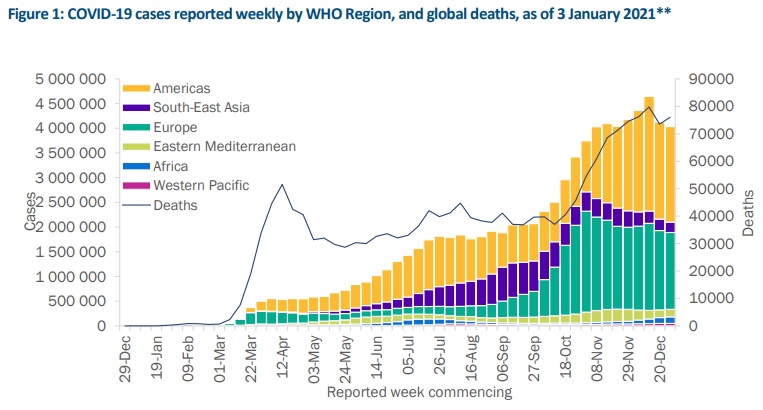
Recent reports of different variants of SARS-CoV-2, the virus that causes COVID-19, have again raised interest in and concern about the impact of viral changes. In the last months, two different variants of SARS-CoV-2 have been reported to WHO as unusual public health events from the United Kingdom of Great Britain and Northern Ireland,
referred to as VOC 202012/01, and the Republic of South Africa, named 501Y.V2. Preliminary epidemiologic, modelling, phylogenetic and clinical findings suggest that SARS-CoV-2 VOC 202012/01 has increased transmissibility, and preliminary data also indicates that there is no change in disease severity (as measured by length of hospitalization and 28-day case fatality), or occurrence of reinfection between variant cases compared to other SARS-CoV-2 viruses circulating in the United Kingdom. To date, outside of the United Kingdom, 40
countries across five of the six WHO regions have reported cases of VOC 202012/01, while outside of South
Africa six countries, in two of the six WHO regions have reported cases of 501Y.V2. The authorities in both
countries are conducting further epidemiological and virological investigations to further assess the
transmissibility, severity, risk of reinfection and antibody response to these new variants, as well as potential
impact on countermeasures, including diagnostics, therapeutics and vaccines.
In the past week, the five countries reporting the highest number of cases were the United States of America
(with 1 325 424 cases, just under a third of global cases and unchanged from last week), the United Kingdom
of Great Britain and Northern Ireland (343 784 cases, continuing last week’s rapid increase with a 36%
increase), Brazil (252 018 cases, an 11% decrease), the Russian Federation (186 539 cases, a 7% decrease) and
India (136 115 cases, a 13% decrease).
Additional Region-specific information can be found below: African Region, Region of the Americas, Eastern
Mediterranean Region, European Region, South-East Asia Region, and Western Pacific Region.
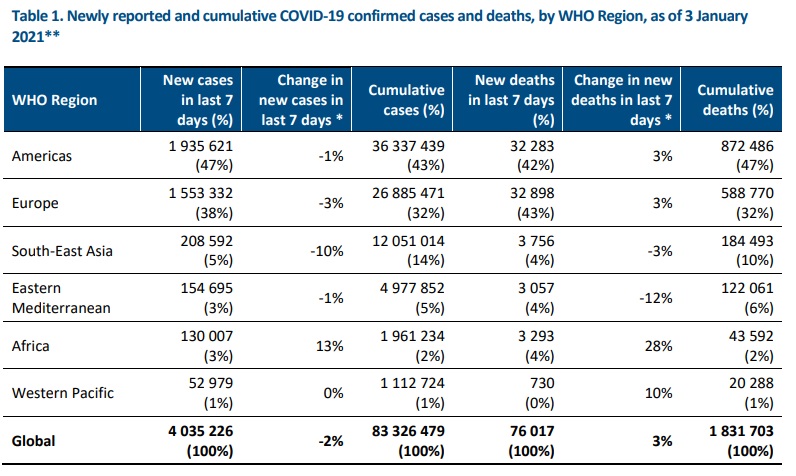
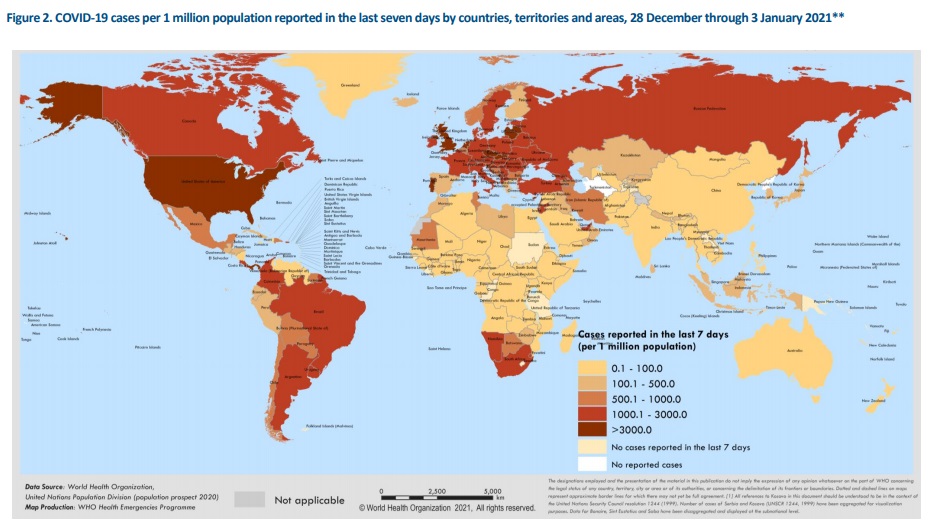
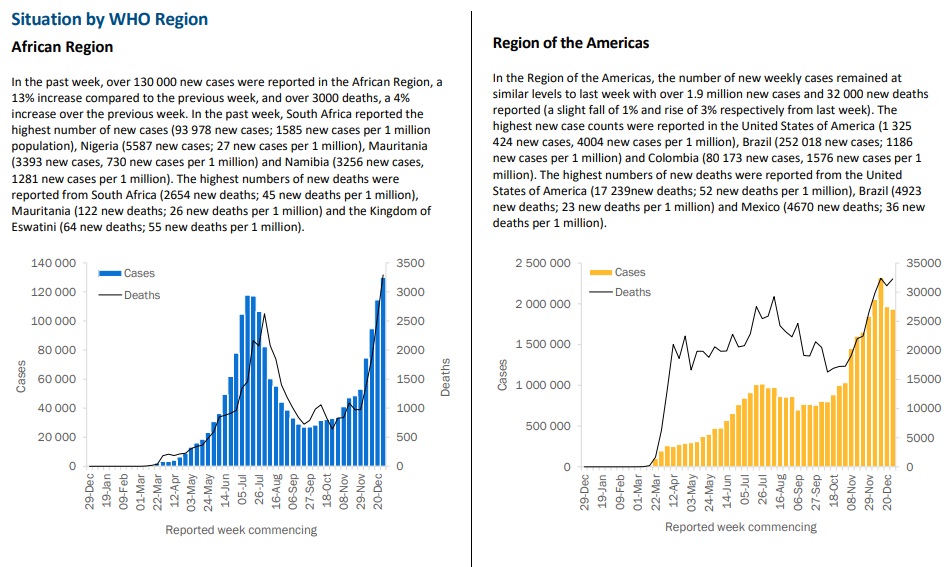
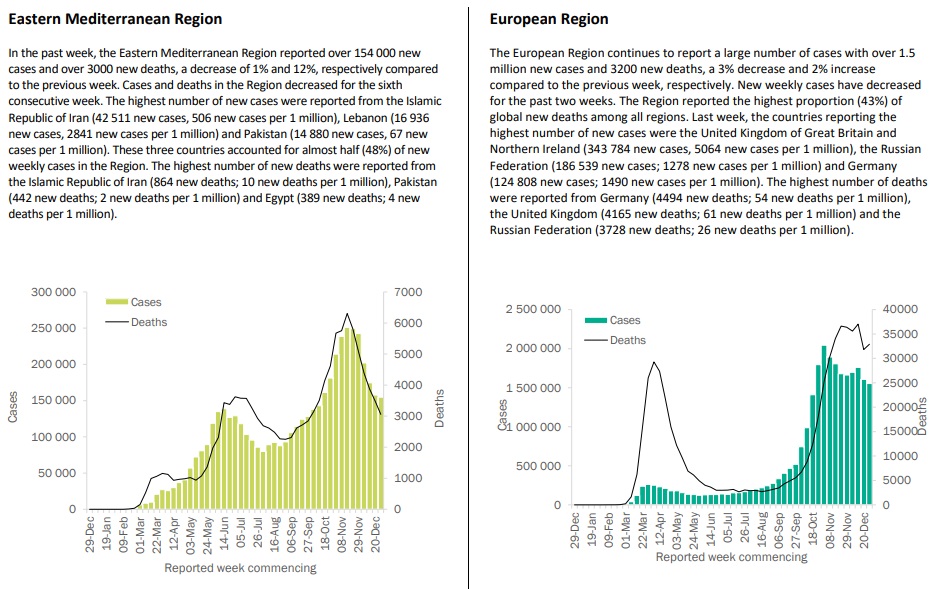
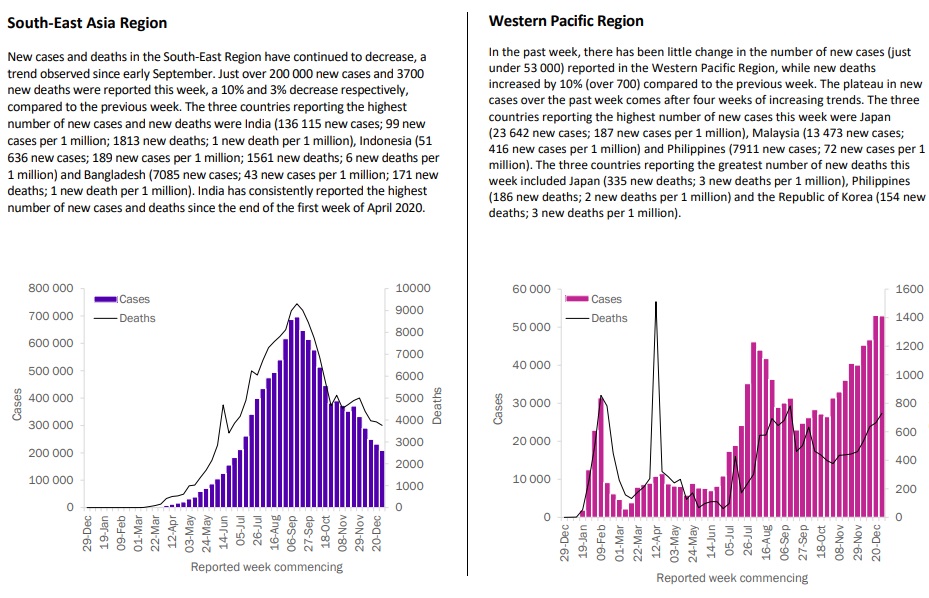
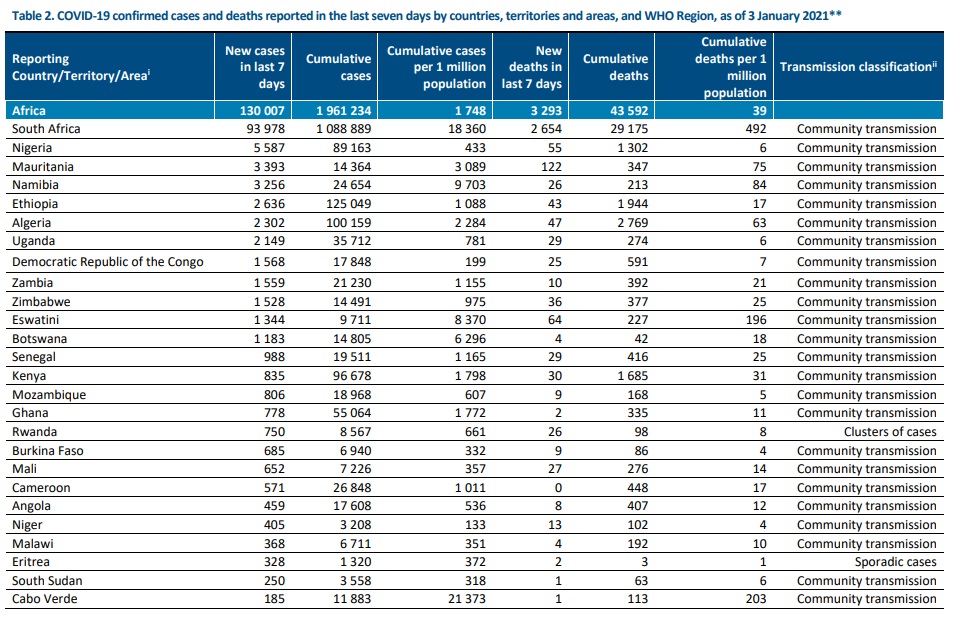
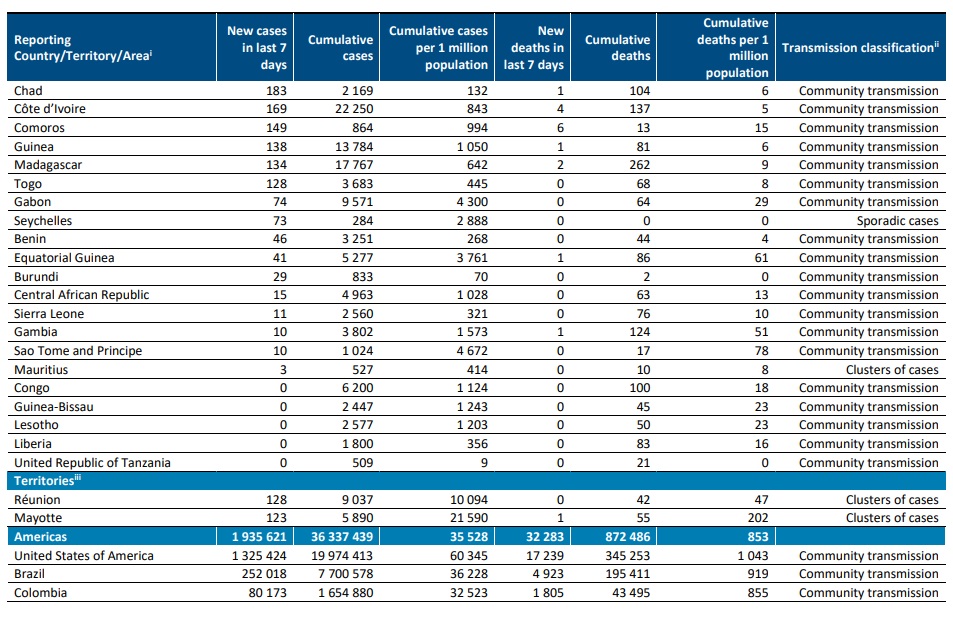
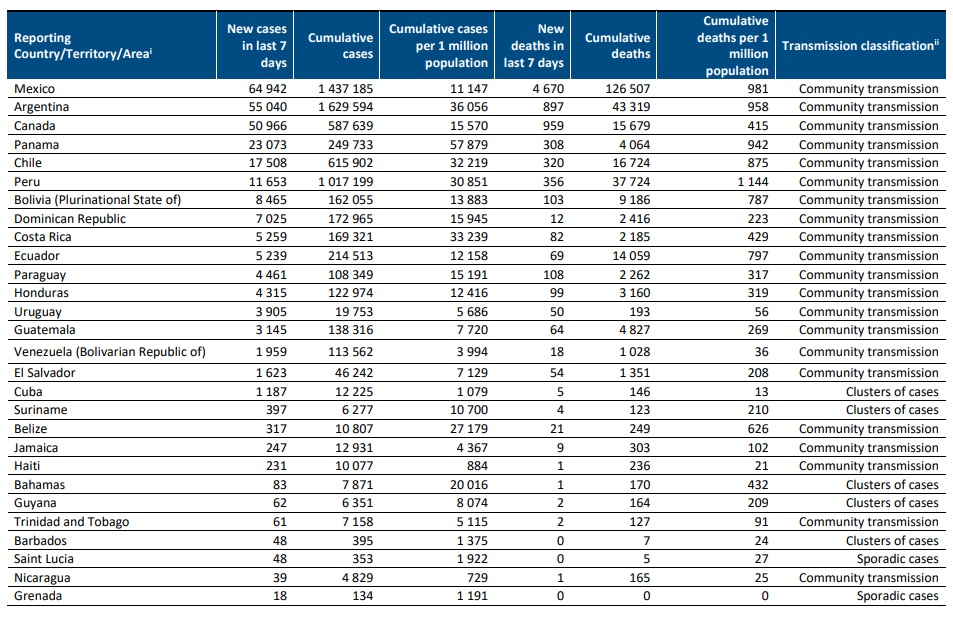


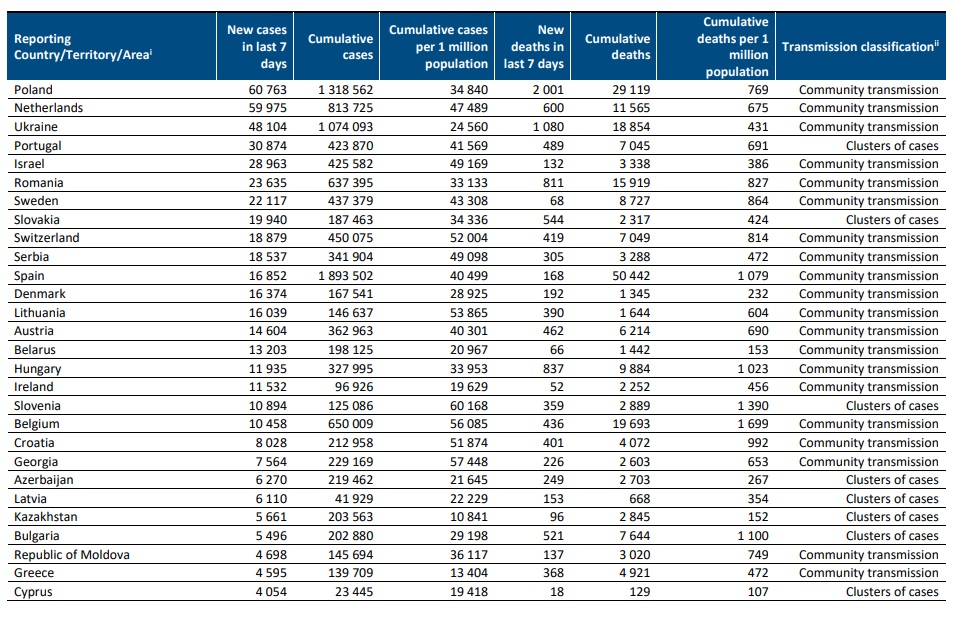

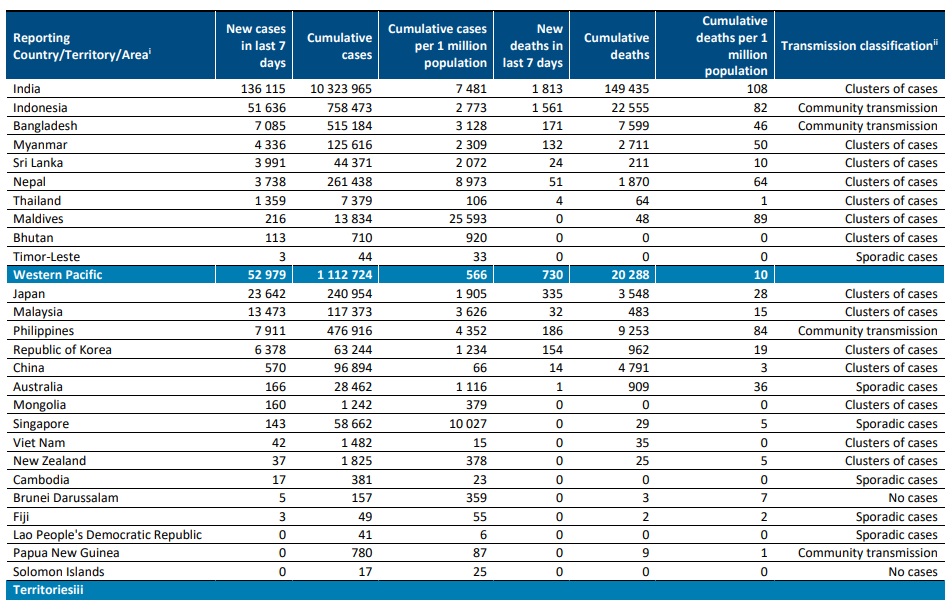

About WHO
The World Health Organization provides global leadership in public health within the United Nations system. Founded in 1948, WHO works with 194 Member States, across six regions and from more than 150 offices, to promote health, keep the world safe and serve the vulnerable. Our goal for 2019-2023 is to ensure that a billion more people have universal health coverage, to protect a billion more people from health emergencies, and provide a further billion people with better health and wellbeing.